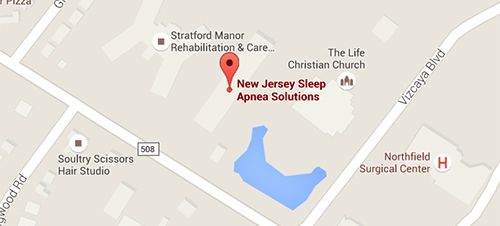Can Sleep Apnea Cause Brain Damage?
Submitted by New Jersey Snoring Solutions on Tue 10/28/2014 - 09:46

Many of us are aware that suffering from a continuous lack of oxygen can cause brain damage. Sufferers of obstructive sleep apnea (OSA), a condition in which the sufferer temporarily stops breathing while sleeping, tens to hundreds of times each night, may then wonder whether sleep apnea can cause brain damage. The team at New Jersey Sleep Apnea Solutions explores the answer.
Studies Show a Link Between OSA and Brain Damage
The short answer to the question is, yes, OSA can potentially cause brain damage, due to the repeated lapses of oxygen to the brain while the sufferer is experiencing apneic events, or bouts of OSA.
A study conducted by researchers at the University of California, Los Angeles, and published in the journal Neuroscience Letters showed that individuals with OSA have tissue loss in the mammillary bodies of the brain. The mamillary bodies are the regions of the brain that help store memory.
The UCLA team also published their findings from a different study in the journal Sleep. This study demonstrated that the participants with sleep apnea have extensive changes in the brain’s “white matter,” or nerve tissue. This tissue contains fibers insulated with myelin, a white, fatty coating.
The structural alterations occur in the regions of the brain that help control memory and mood. The same regions also help adjust blood pressure, as needed. The damage caused by sleep apnea was also found in the fiber pathways that connect these regions of the brain. Thus, it is no surprise that those with OSA are prone to suffering from memory problems, daytime confusion, mood disorders and high blood pressure.
The Good News
There is good news, however: The American Academy of Sleep Medicine conducted its own neuroimaging study, which found that damage to the white matter of the brain caused by OSA can be reversed. The findings were also published in Sleep.
“Structural neural injury of the brain of obstructive sleep apnea patients is reversible with effective treatment,” says Vincenza Castronovo, PhD, the principal investigator and lead author of the study and a clinical psychologist at the Sleep Disorders Center at San Raffaele Hospital and Vita-Salute San Raffaele University in Milan, Italy. “Treatment with CPAP [continuous positive airway pressure therapy], if patients are adherent to therapy, is effective for normalizing the brain structure.”
Therefore, it is essential that OSA sufferers seek medical help to treat their condition as soon as possible. Consistently using CPAP therapy for 12 months has been shown to provide an almost complete reversal of white matter irregularities. This treatment also generated a substantial improvement in almost all cognitive exams, alertness, mood and even overall quality of life.
If you suffer from sleep apnea, contact New Jersey Sleep Apnea Solutions for help. To schedule an appointment with an OSA expert, please contact New Jersey Sleep Apnea Solutions by calling (855) 949-7667.







